It seems appropriate today, given that it’s the deadline day for the 2018 Myriad First Graphic Novel Competition, to be giving some time to a book that was shortlisted for the last incarnation of the competition. Rob Wells didn’t win for his autobiographical graphic medicine offering Back, Sack & Crack (& Brain) but it certainly made an impression on the judges with its candid account of its creator’s chronic health problems. And I’m well placed to make that claim given that I was, myself, one of those aforementioned judges back in 2014.
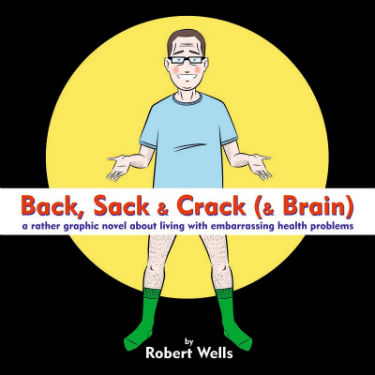 Wells is an artist whose work has been a staple of the UK small press scene for a number of years. He’s self-published his own comics Crisp Biscuit and Colin Comix, collaborated with writer Rol Hirst on Department of the Peculiar and contributed to anthologies like A Bit of Undigested Potato. With a crisp, clean cartooning style, a dry wit and a line in merciless self-deprecation, he’s been long overdue his own moment in the spotlight. It was welcome news indeed, then, when Little, Brown picked up Back, Sack & Crack (& Brain).
Wells is an artist whose work has been a staple of the UK small press scene for a number of years. He’s self-published his own comics Crisp Biscuit and Colin Comix, collaborated with writer Rol Hirst on Department of the Peculiar and contributed to anthologies like A Bit of Undigested Potato. With a crisp, clean cartooning style, a dry wit and a line in merciless self-deprecation, he’s been long overdue his own moment in the spotlight. It was welcome news indeed, then, when Little, Brown picked up Back, Sack & Crack (& Brain).
Spanning a timeframe that begins in Wells’s early twenties and continues through to the present day, the book is a catalogue of ill-health, social embarrassment and moments of gloriously cringe-inducing confession that somehow manages to be both awkward and engaging at the same time. Indeed, this is a narrative experience where the reader constantly finds themselves not wanting to laugh at Wells’s plight, not quite being able to laugh with him given his on-page persona’s constant discomfort throughout, but still somehow guiltily finding the morbid humour in each anecdotal vignette.
As the title suggests Back, Sack & Crack (& Brain) recounts Wells’s years of suffering with ailments associated with his groin and stomach and compounded by his back problems and mental health issues. In an early anecdote about Christmas gift-buying a disastrous foray into a shopping centre for Star Wars figures first becomes a tactical mission to ensure every shop stop includes a toilet on the way (“I could probably make it there and back without shitting myself”) before he later finds himself incapacitated by testicular pain and subsequently terrifying fellow bus stop commuters while trying to explain his predicament to them.
What follows is a grimly comedic account of years of operations, misdiagnoses and indifference/incompetence from the medical profession. Wells speaks directly to the readership, providing an ongoing retrospective commentary on a neverending cycle of clueless doctors fobbing him off with similar excuses and dismissing his obvious distress with claims that there’s either nothing wrong with him or – in a running gag throughout – that just losing some weight will alleviate his problems. As we move from the 1990s to the 2000s, with occasional non-linear interludes, we observe as his extreme discomfort leads into mental health crisis, social seclusion and recurrent attempts to find alternative treatment outside of the confines of an ineffectual health service.
What makes this such a markedly different read in the graphic medicine strand of comics storytelling is Wells’s ability to find humour in subject matter that would otherwise seem beyond comedy. This largely centres around his willingness to turn moments of abject humiliation into dark farce. His expressive cartooning plays a major role in this with the on-page Wells cutting a wretched figure throughout and visual characterisation ensuring both the reader’s sympathy with the artist and frustration with the uncaring bureaucracy he encounters.
Scattered through these pages are the occasional flights of fancy that bend reality to accentuate the unpleasantness of events. An exploratory procedure is depicted as if the gastroenterologist was utilising a monstrous, cartoonish anal probe; shop fronts reflect a more forthright definition of their services (a colonic irrigation business becomes the “South London Arse Rinsing Clinic”); and there’s a sidestep into newspaper-style comic strips as an aside at one point. Sight gags are as vital a part of the humour as Wells’s wearily resigned narration and expert pacing.
This is a graphic novel that is uncompromisingly honest and open, and refreshingly so. Robert Wells’s debut book puts the ‘graphic’ in ‘graphic medicine’ with a bleakly witty flourish. Not so much painfully amusing as excruciatingly, squirmingly and eye-wateringly funny.
Robert Wells (W/A) • Little, Brown, £12.99





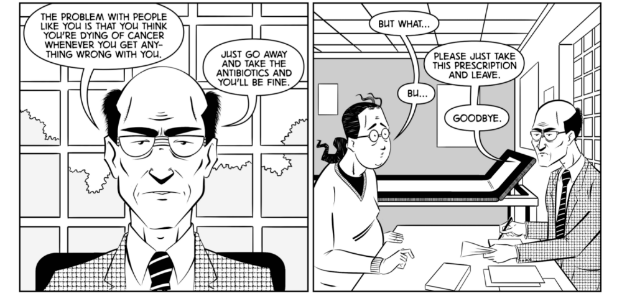
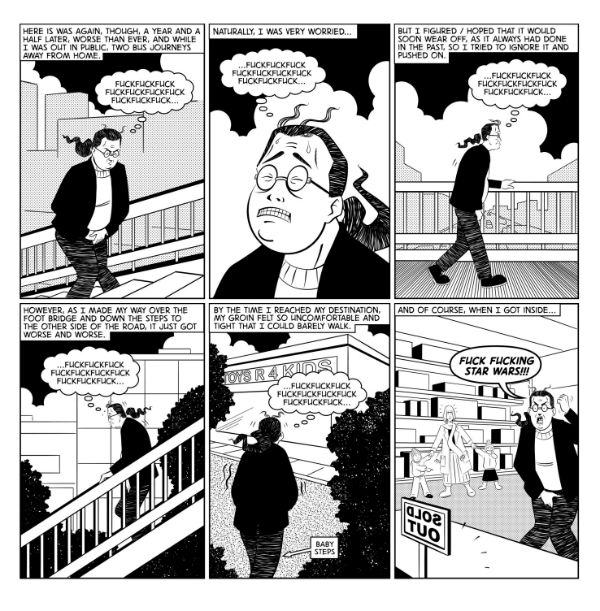
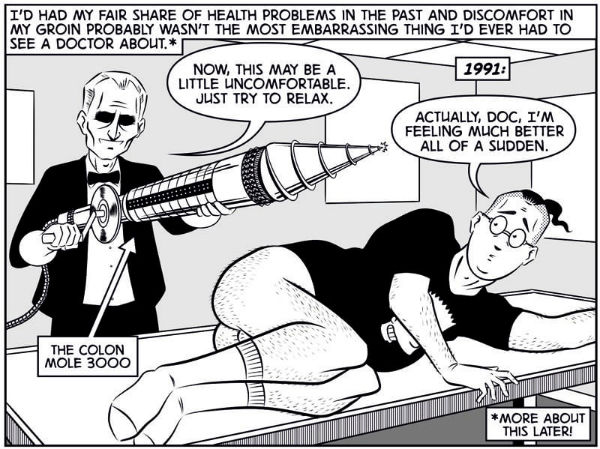

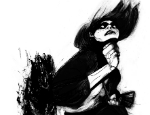
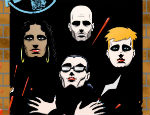
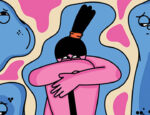


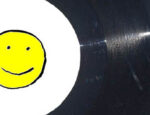
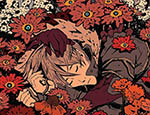
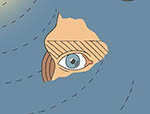
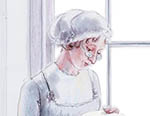
[…] […]